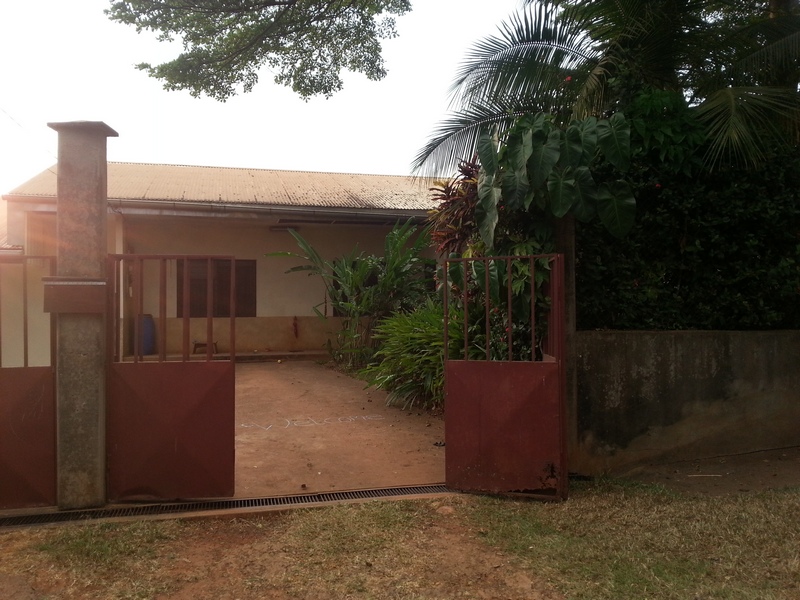Today marks two weeks since we arrived in Cameroon. We still feel welcome like we mentioned in our last post. These last two weeks have been full of learning opportunities (some might say culture shock) as you can imagine. We suspect that many of you are asking what it’s like where we’re currently living in the capital.
We had the luxury of having a colleague pick us up from the airport and take us directly to one of our organization’s compounds where there was a furnished apartment waiting for us. We can only imagine what it must have been like for the real pioneers of modern missions who everywhere they went had to blaze their own trail. We’re lucky in that our organization has been at work in the country for quite a number of years and the branch here is one of the bigger ones in Africa. They were ready for us.
But, yes, we’re living on a compound. It’s a walled, gated and guarded community of a number of apartments. We’re in #23 which is sort of tucked away behind tropical greenery. There’s a playground in the center where the kids are constantly gathering to play. I could continue to describe it but I’ll let the following pictures show you around.
It’s up in the air how long exactly we’ll be here in the capital. Today is the end of our first week of month-long orientation. After orientation, we’ll begin working with a placement committee who will help us work out which language project might be the best fit for us. Most likely we’ll end up in a village away from the capital. Please pray for wisdom and guidance in choosing which project to join.
We’re starting to get into a groove with our day to day routine. During the week we are in class in the morning and then we have the afternoons free. We’re using the afternoons to continue to get settled in. Finally this week we worked out an internet solution, for example. We also take trips to the large markets in town where we buy fruit and vegetables and powdered milk. Downtown there are major supermarkets where you can find just about anything you fancy, if you’re willing to pay the price. (I saw a normal size can of baked beans for $4!) A taxi ride from our place to the heart of town costs about $1 roundtrip, takes about 20-30 minutes one-way and is a cultural experience all in itself.
We are able to find most staple ingredients for cooking right here in the neighborhood where we live. The main road outside the compound is lined with small boutiques that carry a wide variety of everyday items. For example, one boutique has large sacs of beans, rice and flour sitting out and we simply go in with a large container and ask them to fill it up. They weigh it, we pay, and then we’re off to the next boutique where we might buy okra and bananas or dishwashing soap and a bottle of Coke. In this way, our regular shopping experiences feel much more communal and villagey than in the US or UK. Shopkeepers want to make sure you have a good experience at their shop. That way you’ll come back. Whereas Walmart, unfortunately, doesn’t really mind all that much what kind of experience you have, because they know that you’ll be back.
This communal, villagey shopping pattern has been a big shift for us. Aren’t we all used to one-stop shopping? Need I mention Walmart again? We now find ourselves asking friends and colleagues where they buy such-and-such locally, rather than taking the Western way out and heading into town to shop at the overpriced French supermarkets. It’s been a big adjustment but it’s sort of fun at the same time, too. We like thinking we’re helping locals businesses rather than the big guys—and that’s true whether we’re in the US or in Africa.
Yes, we have running water, a water heater and electricity. We sleep under mosquito nets. We use a water filter for all of our drinking water as the “potable” water that comes out of the tap looks suspect. We don’t have a TV, dishwasher or microwave. So far the dishwasher is the only one that we’ve really missed. During our second week we experienced three extended power outages, resulting in two candle-lit dinners with the kids. What’s fun about power outages is that when the power does come back on, you get to see what all you had running and how much of it was unnecessary.
For the moment, we feel like we have everything we need. The kids are happy and loving the playground on the compound. The sun and heat can be a little draining, but when you have metered internet and no TV and power outages, it’s easy to turn in early and fall asleep with a book.















CommentsOnToast